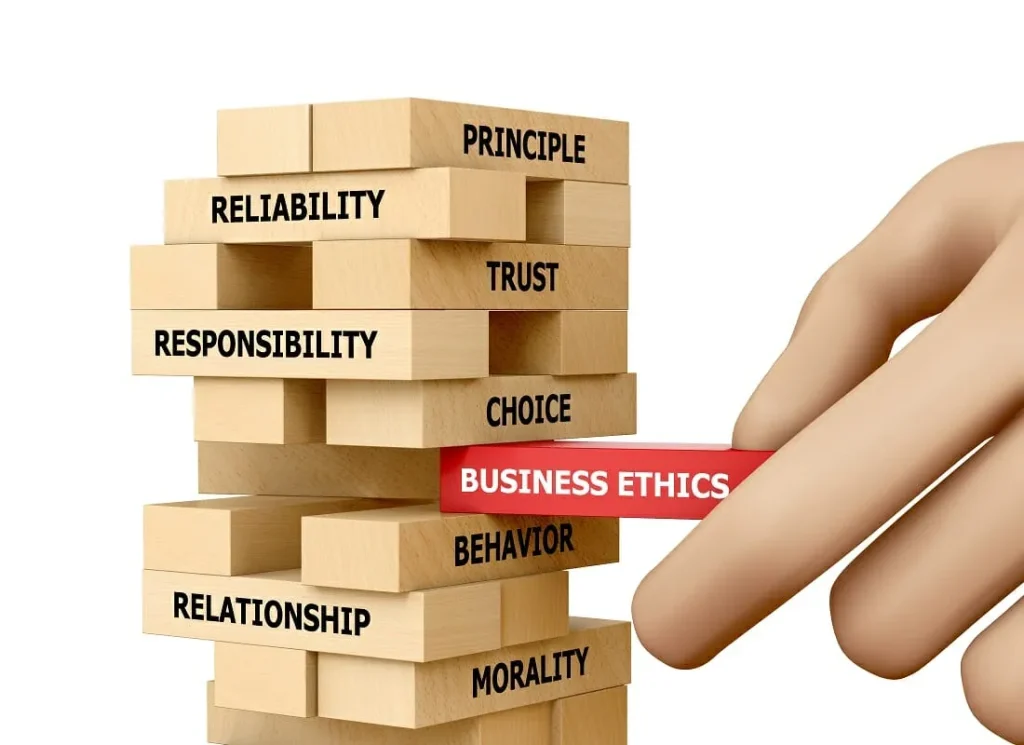In today’s rapidly evolving business landscape, the concept of business ethics has gained significant importance. Companies worldwide are recognizing the need to conduct their operations ethically, aligning their practices with societal values and moral standards.
This comprehensive guide aims to explore the key aspects of business ethics, shedding light on its pros and cons. By delving into the subject, we can gain a deeper understanding of how ethical considerations impact businesses and their stakeholders.
What is Business Ethics?
Business ethics refers to the moral principles and values that guide the behavior and decision-making processes within an organization.
It involves considering the impact of business activities on various stakeholders, such as employees, customers, suppliers, investors, and the wider society.
Ethical business practices go beyond legal requirements and encompass actions that are fair, honest, transparent, and socially responsible.
Importance of Business Ethics
Business ethics serves as a compass for organizations, shaping their conduct and interactions.
It establishes a framework for responsible decision-making and helps prevent unethical practices that may harm individuals, communities, or the environment.
Companies that prioritize ethics build trust, foster positive relationships, and contribute to sustainable development.
Pros of Business Ethics
Enhanced Reputation and Brand Value: Operating with strong ethical principles creates a positive reputation for a company, enhancing its brand value.
Ethical behavior builds trust among customers, suppliers, and other stakeholders, leading to increased loyalty and repeat business.
A solid reputation also attracts top talent and fosters partnerships with like-minded organizations.
Increased Employee Engagement and Retention: Companies that prioritize ethics experience higher employee engagement and retention rates.
When employees feel their organization upholds moral values, they are more motivated, committed, and proud to be part of the team. This leads to improved productivity, lower turnover, and a positive work culture.
Improved Customer Loyalty: Ethical business practices resonate with customers, who prefer to associate with companies that align with their values.
By prioritizing transparency, fairness, and social responsibility, businesses can cultivate customer loyalty and advocacy. Satisfied customers are more likely to recommend the company to others, contributing to long-term success.
Strengthened Investor Confidence: Investors increasingly consider ethical factors when evaluating potential investments.
Companies with a strong ethical track record are perceived as lower risk, attracting investors who prioritize sustainability and responsible business practices. This can lead to better access to capital, partnerships, and increased financial stability.
Cons of Business Ethics
Potential Cost Implications: Implementing and maintaining ethical practices may entail additional costs. Compliance with regulations, ethical certifications, and responsible sourcing initiatives may require financial resources.
However, the long-term benefits, such as enhanced reputation and customer loyalty, often outweigh the initial expenses.
Decision-Making Complexity: Ethical considerations can introduce complexity into decision-making processes. Balancing financial objectives with ethical responsibilities may require careful analysis and trade-offs.
Organizations need to navigate gray areas and make decisions that align with their values while still ensuring profitability.
Competitive Disadvantage: In some cases, strict adherence to ethical principles may put a company at a competitive disadvantage. Competitors who prioritize short-term gains over ethical conduct might gain cost advantages or market share.
However, companies committed to long-term success understand that ethical practices create sustainable value and build enduring relationships.
Challenges in Implementation: Implementing business ethics initiatives can be challenging. Ensuring consistent adherence across different departments, locations, and supply chains requires effective communication, training, and monitoring.
Resistance to change or lack of awareness may hinder successful implementation, requiring ongoing commitment and effort.
Balancing BusinessEthics and Profitability
Striking a balance between business ethics and profitability is crucial. While ethical conduct can contribute to financial success, it is essential to align ethical decisions with the organization’s overall goals.
By integrating ethics into strategic planning, policies, and operations, companies can maximize positive outcomes for all stakeholders.
Conclusion
Business ethics is an essential aspect of modern-day organizations. By adhering to ethical principles, businesses can build trust, strengthen their reputation, and foster sustainable growth.
While there may be challenges and costs associated with implementing business ethics, the benefits far outweigh the drawbacks. Striving for ethical excellence not only brings financial advantages but also contributes to a more equitable and responsible business environment.

